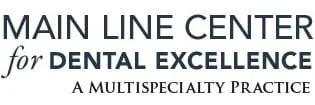Regular visits to your Narberth, PA, dentists, Drs. Ernest Dellheim, Sheena Hauser, and David Block of Markowitz & Dellheim can reduce your risk of gingivitis, the earliest form of gum disease. Do you know how to spot the signs of gingivitis?
What are the signs and symptoms of gingivitis?
Gingivitis is easy to ignore because the symptoms don't seem very alarming at first. Inflamed gum tissue may bleed when you brush and floss, turning your toothbrush or floss pink or bloody. Contrary to popular belief, bleeding isn't normal and warrants a trip to the Narberth dental office.
Other signs of gingivitis can include receding gums and swollen, red gums. Persistent bad breath may also be a sign. If brushing, flossing, and liberal use of mouthwash and mints don't improve your breath, you may have gingivitis.
How is gingivitis treated?
The earlier gingivitis is diagnosed, the simpler the treatment. You may only need a dental cleaning and improved oral hygiene to reverse the disease at this point. Flossing once a day and brushing twice a day for at least two minutes will help you remove plaque on and between your teeth and decrease your gum disease risk. Eliminating plaque prevents the transparent film from turning into tartar, a hard deposit that irritates your gums.
Why is gingivitis treatment so important?
Gingivitis will eventually turn into a more severe form of gum disease if you don't see the dentist and spend more time brushing and flossing. If this happens, bacteria may damage your gum tissue, ligaments, and bone, loosening your teeth.
Depending on the severity of the disease, you may require deep cleaning to remove plaque and tartar above and below the gum line, or surgery to remove damaged tissue, replace lost bone and tissue with grafts, or close deep pockets around teeth. If you've lost teeth, you'll need dental implants, bridges, or dentures to restore your smile.
Your risk of developing gum disease increases as you get older. Forty-seven percent of adults 30 and older have some form of the disease, according to the Centers for Disease Control and Prevention, while 70 percent of adults 65 and older have gum disease. Practicing good oral hygiene, scheduling regular dental checkups and cleanings, and visiting the dentist as soon as possible if you notice any changes in your gums can help you protect your oral health.
Are you ready to schedule your next checkup? Call your dentists in Narberth, PA, Drs. Ernest Dellheim, Sheena Hauser, and David Block, at (610) 664-6061 to schedule your appointment.




